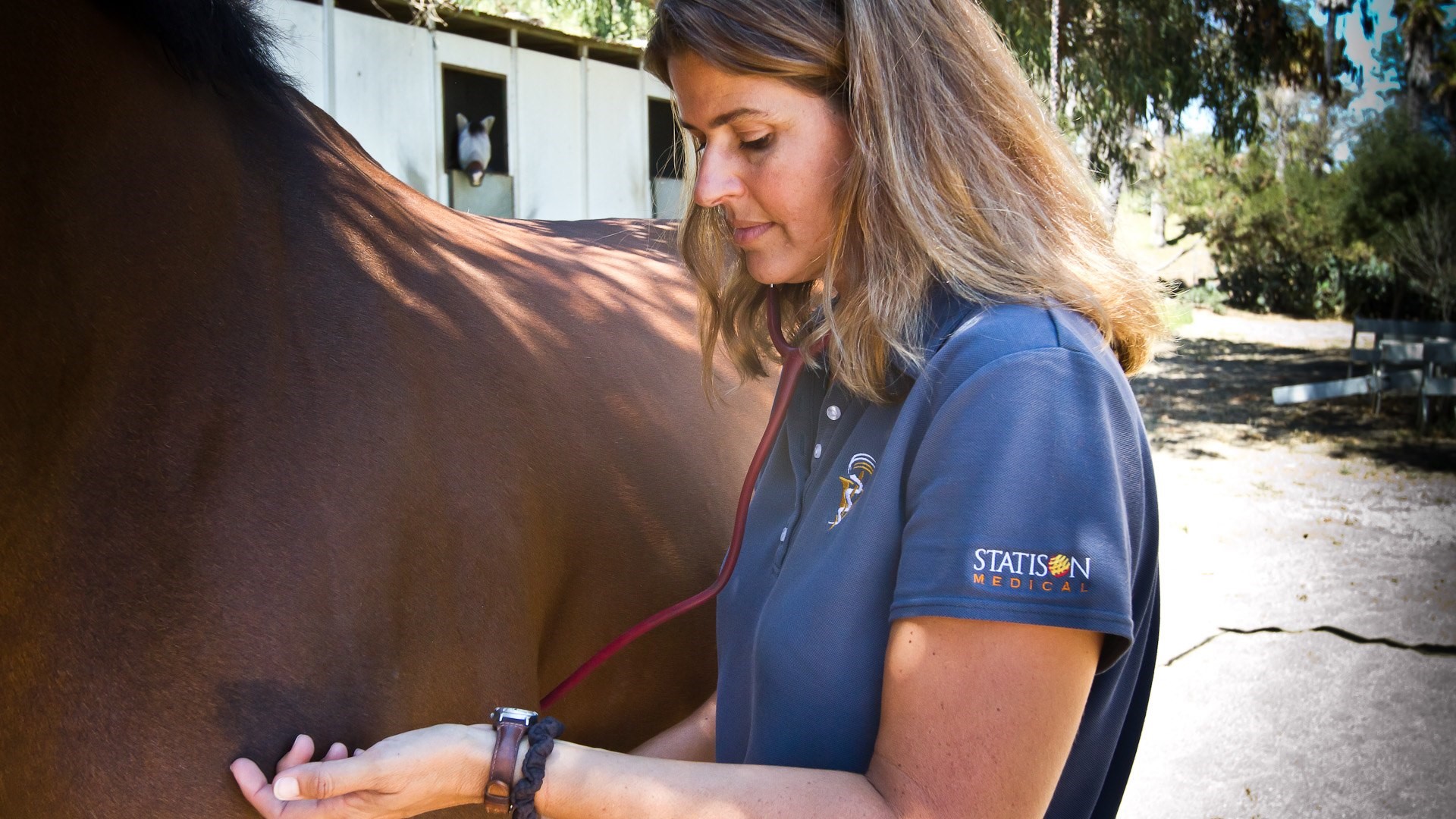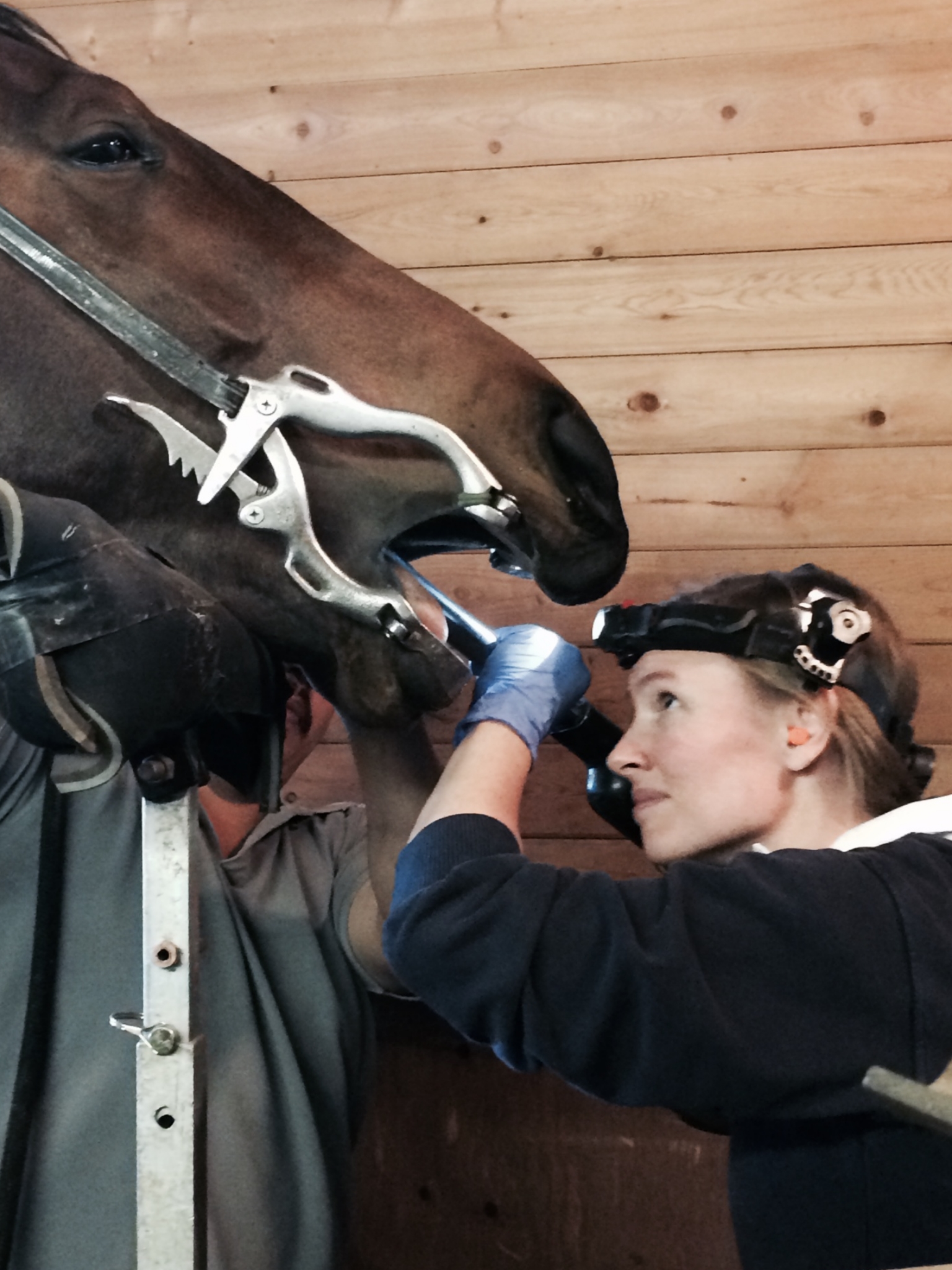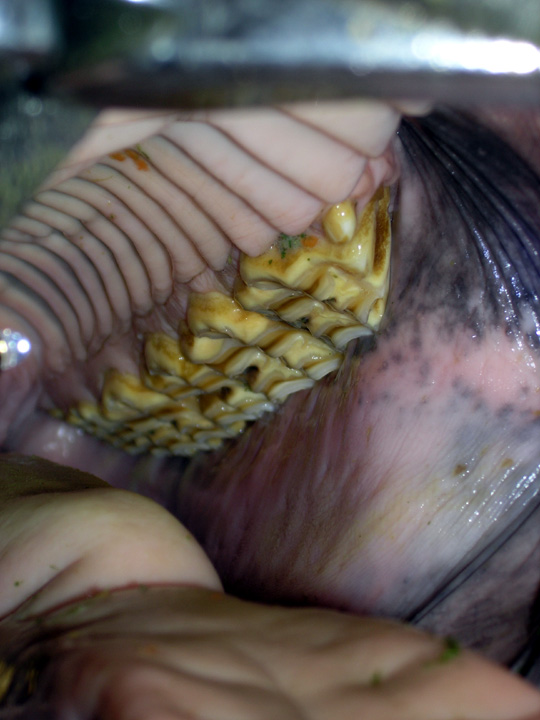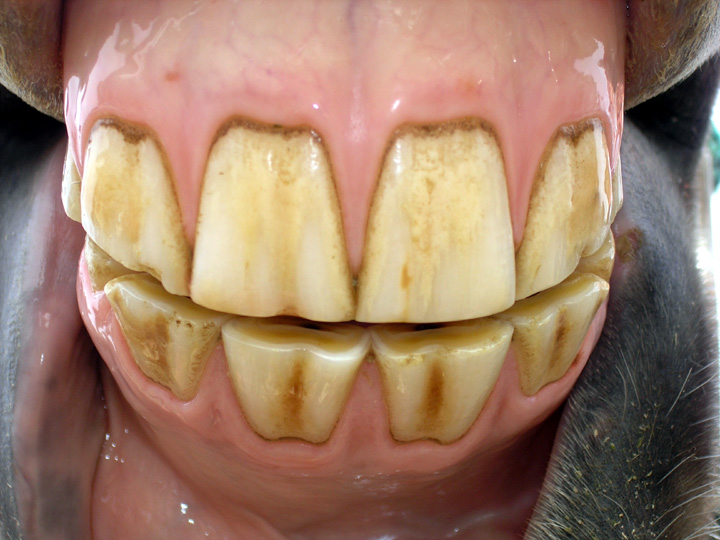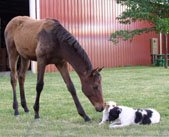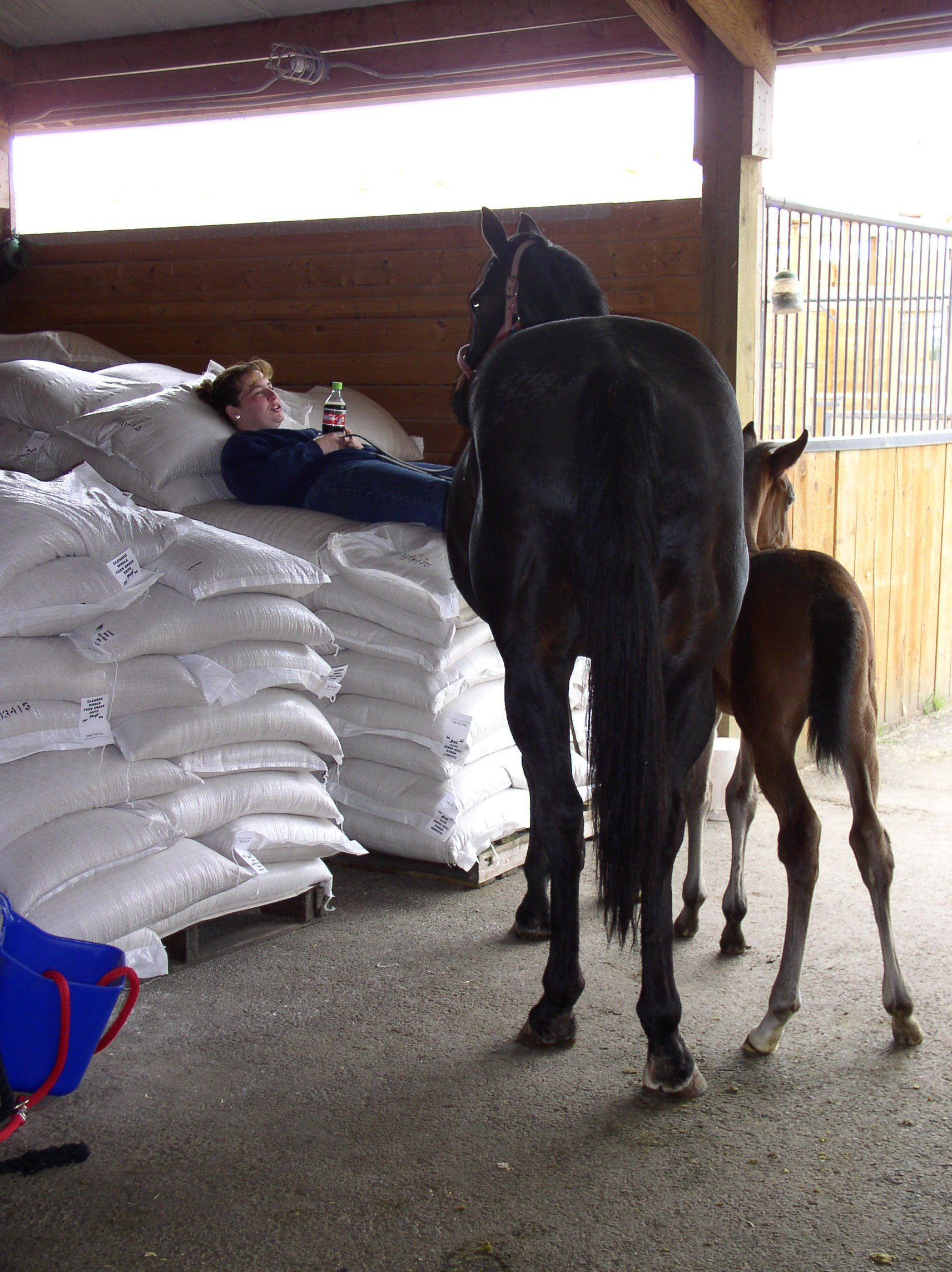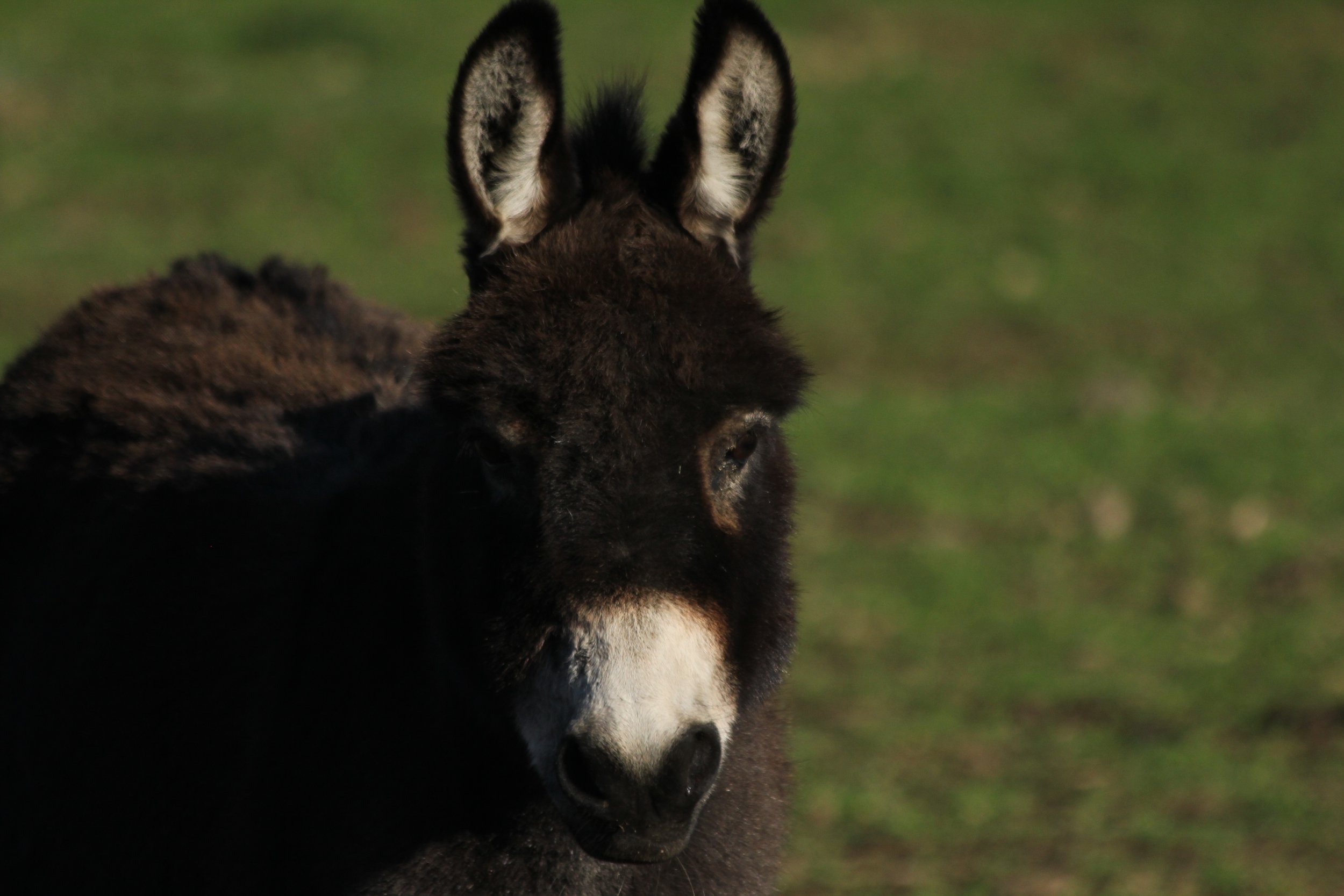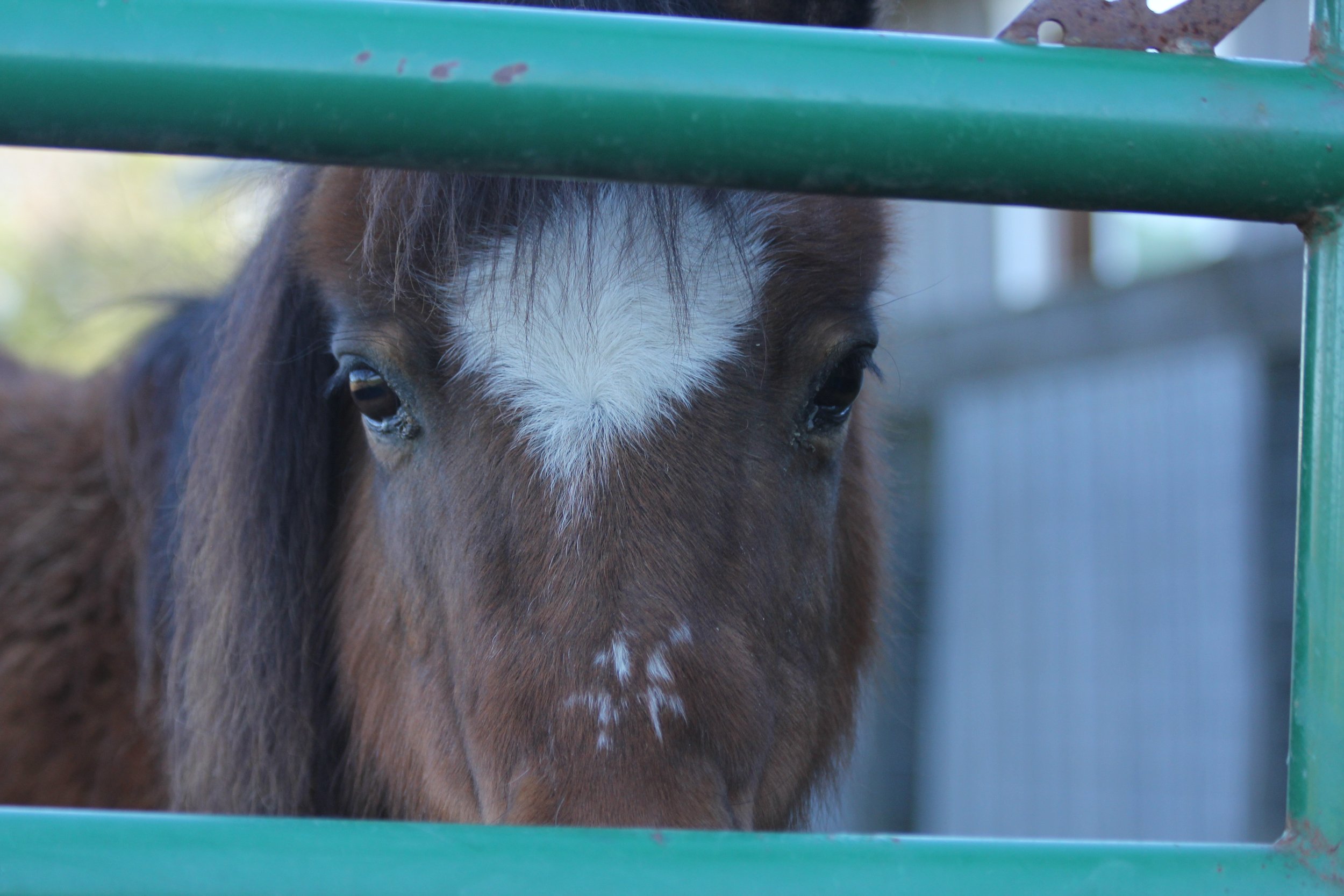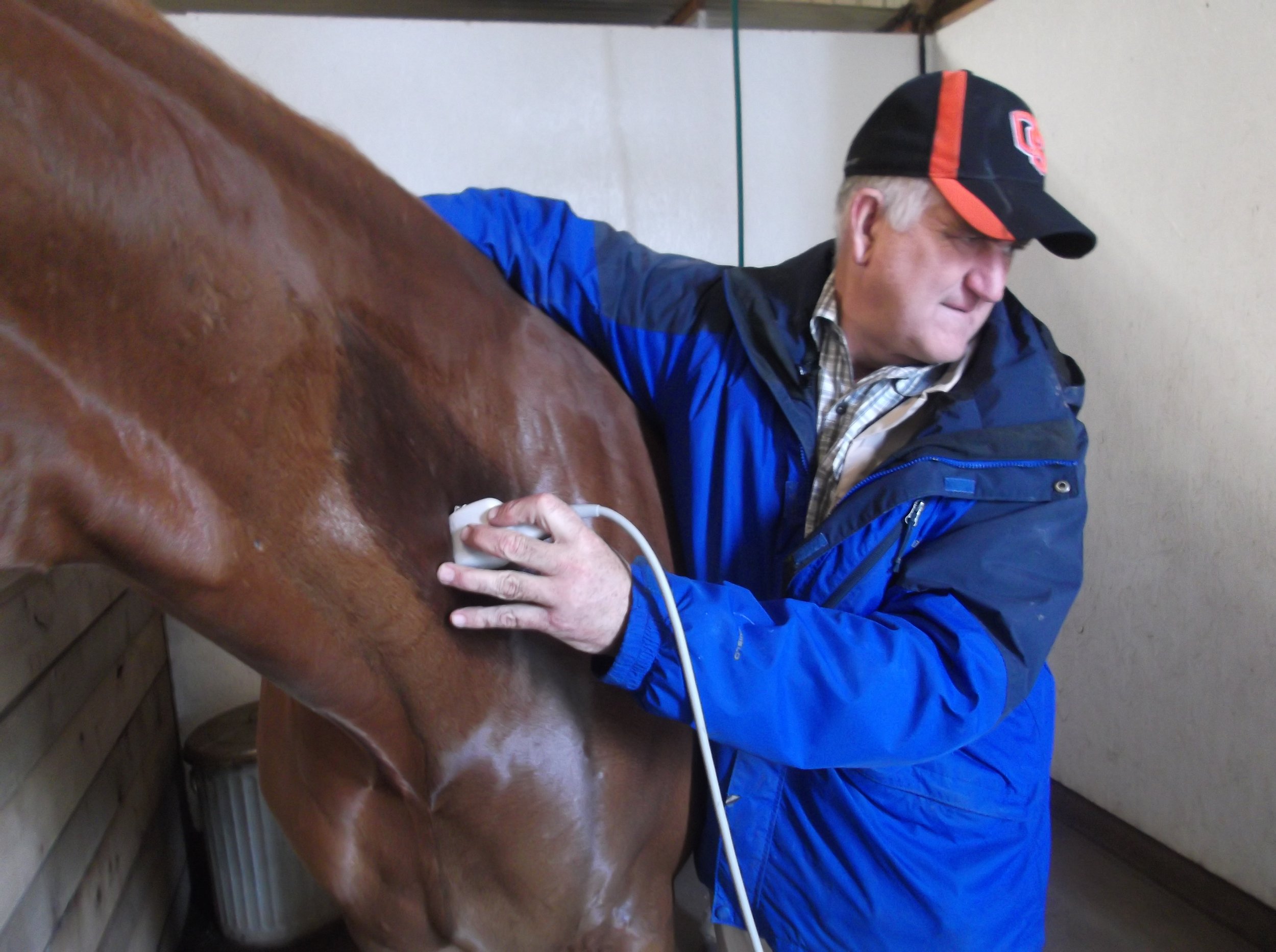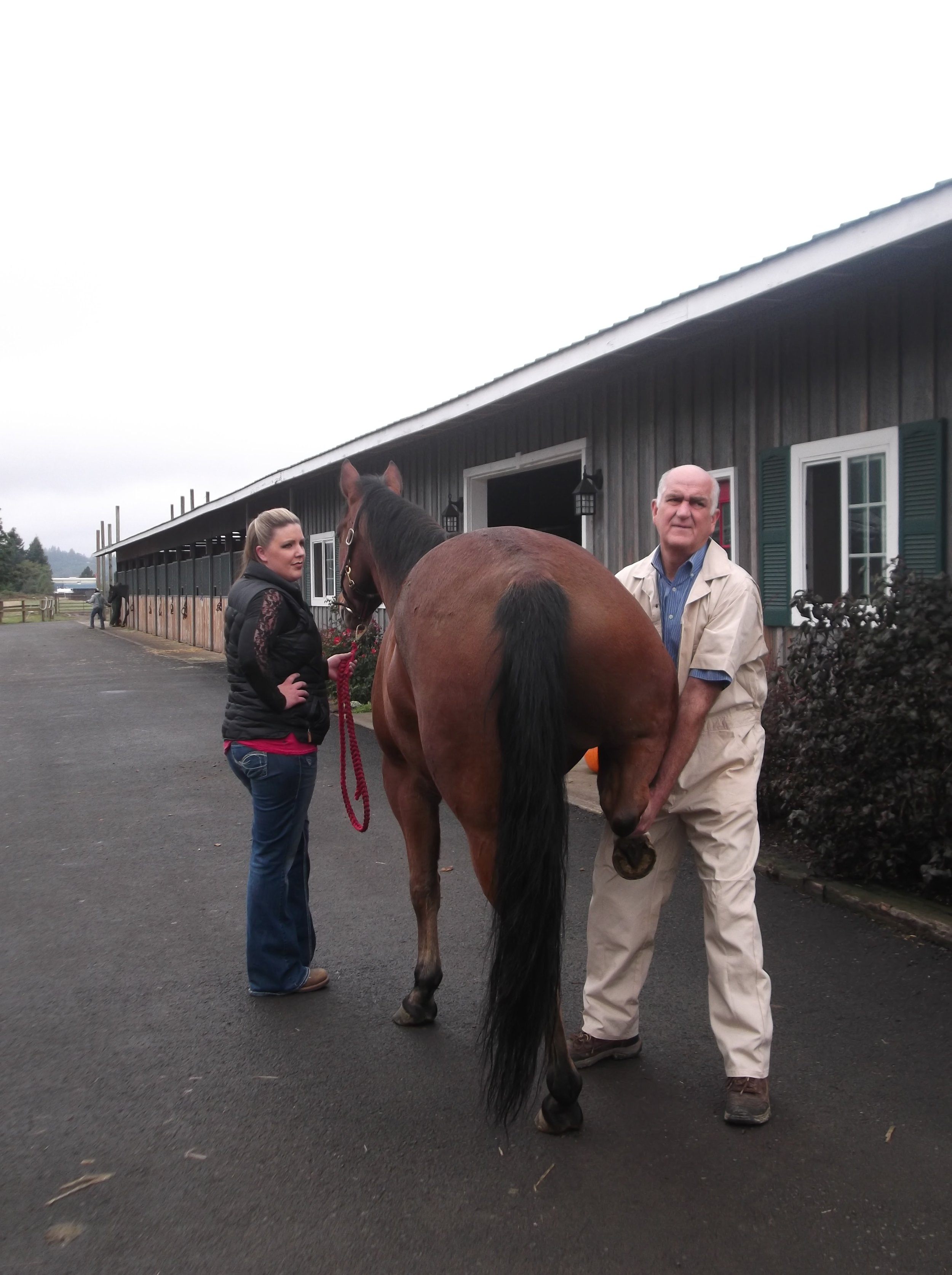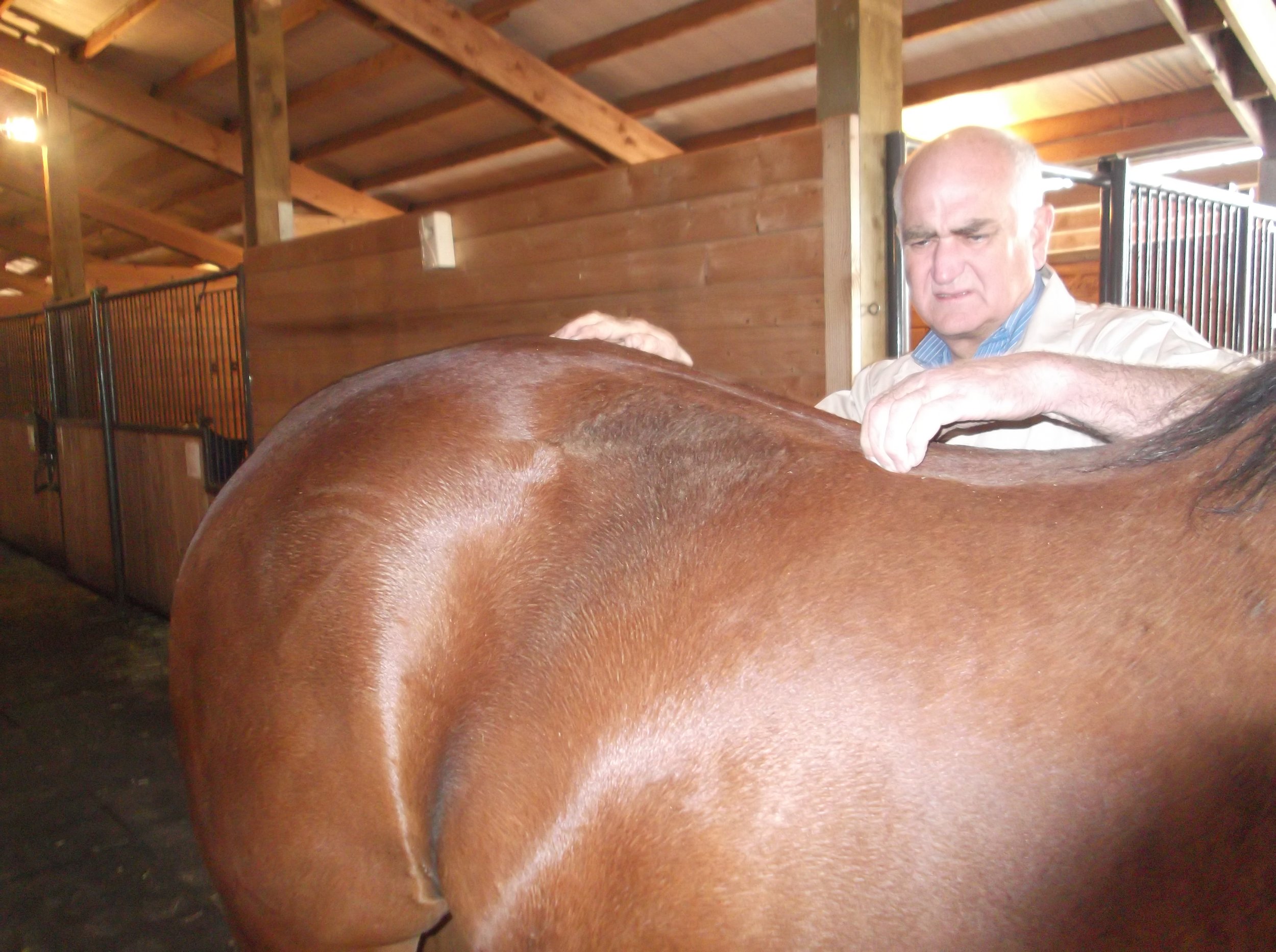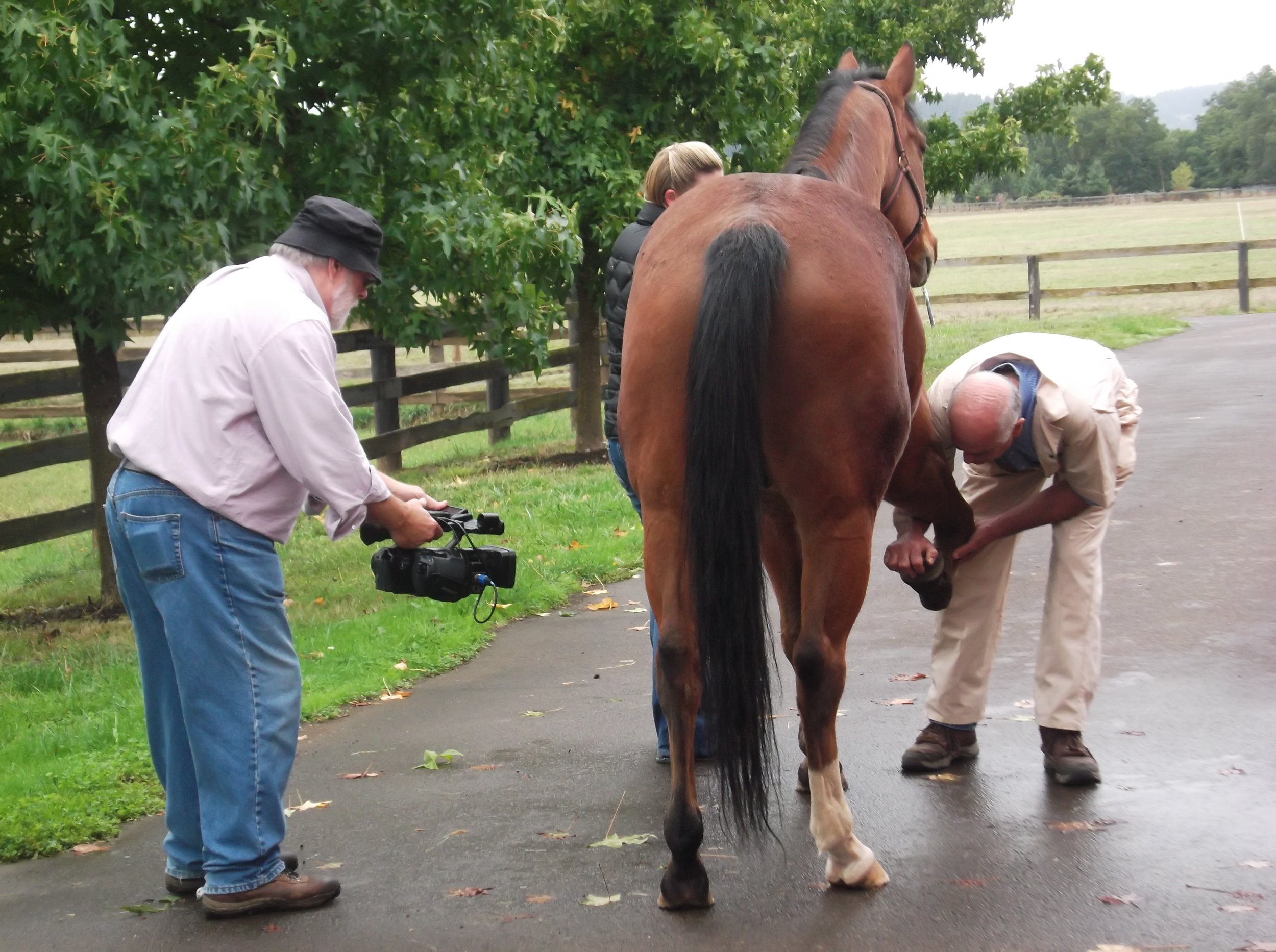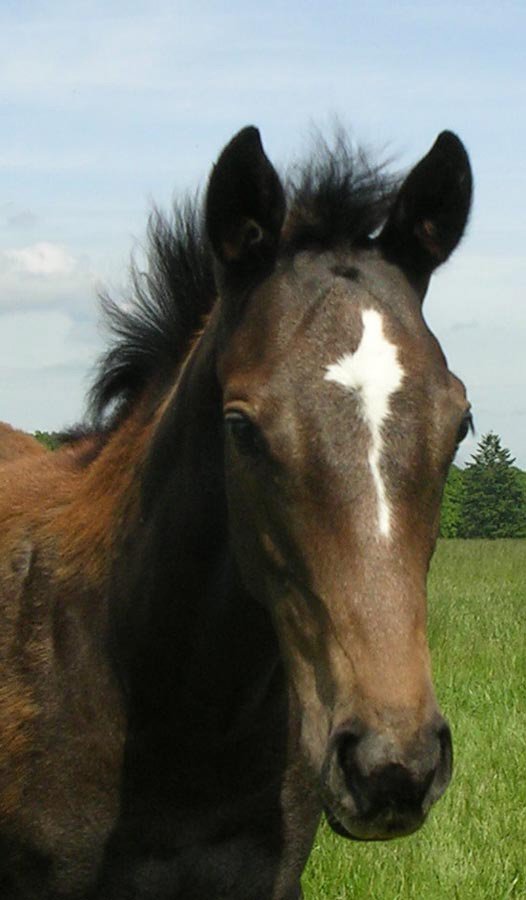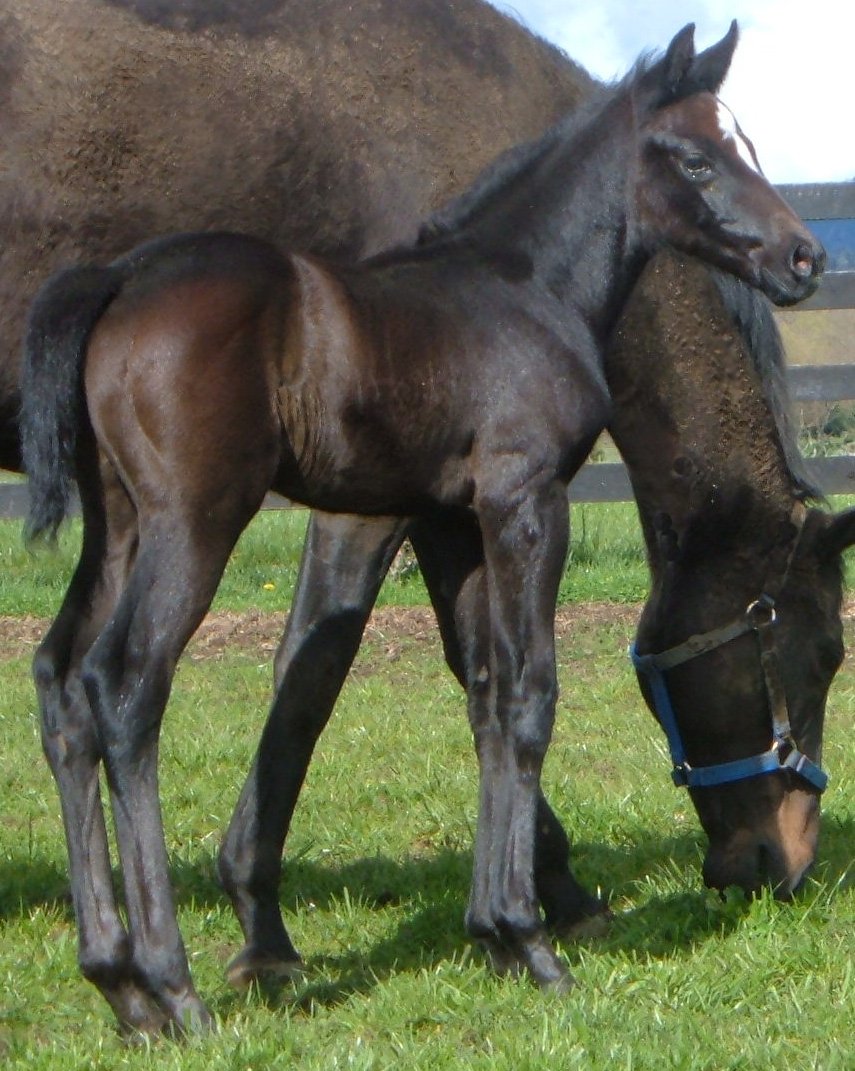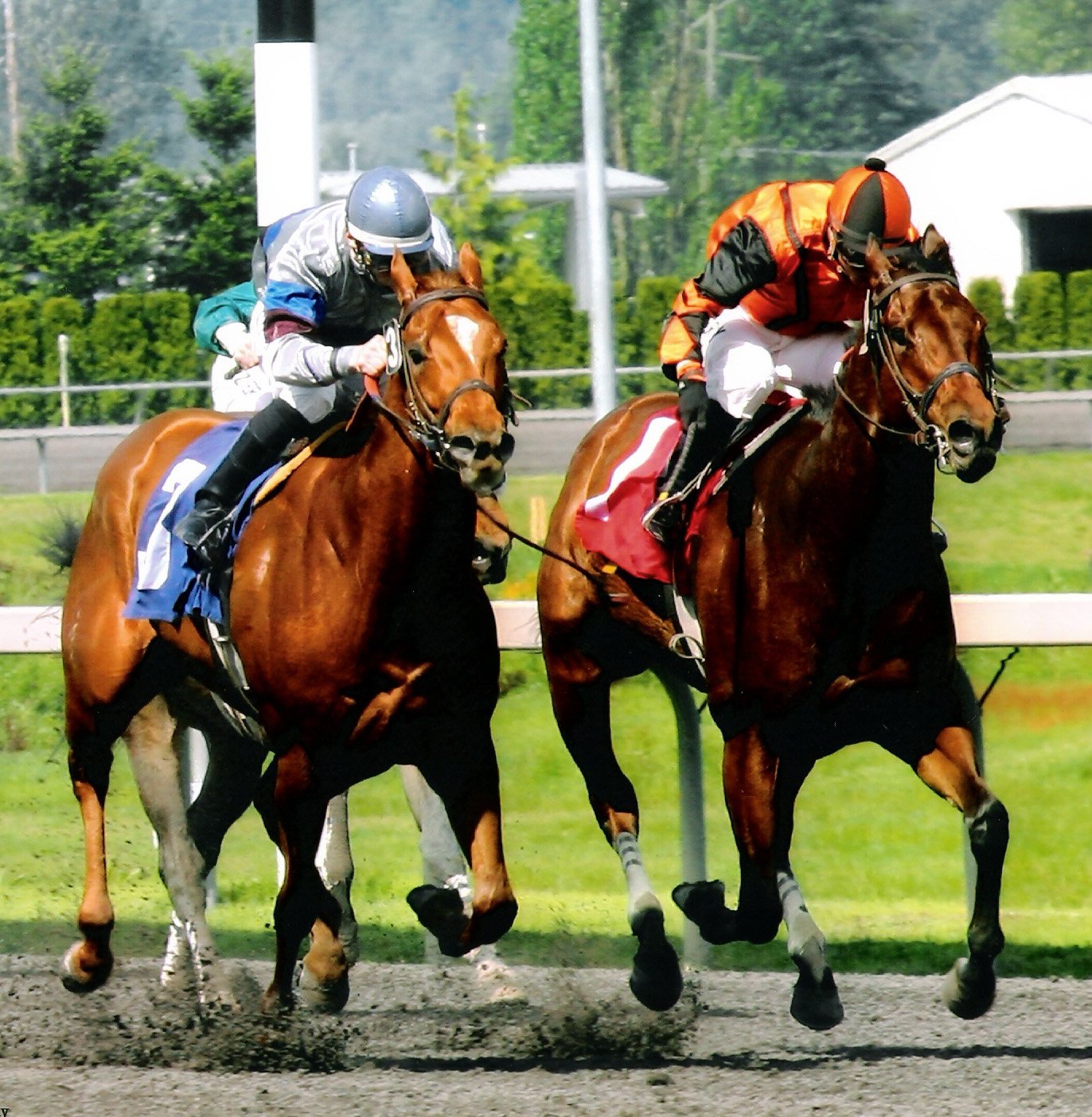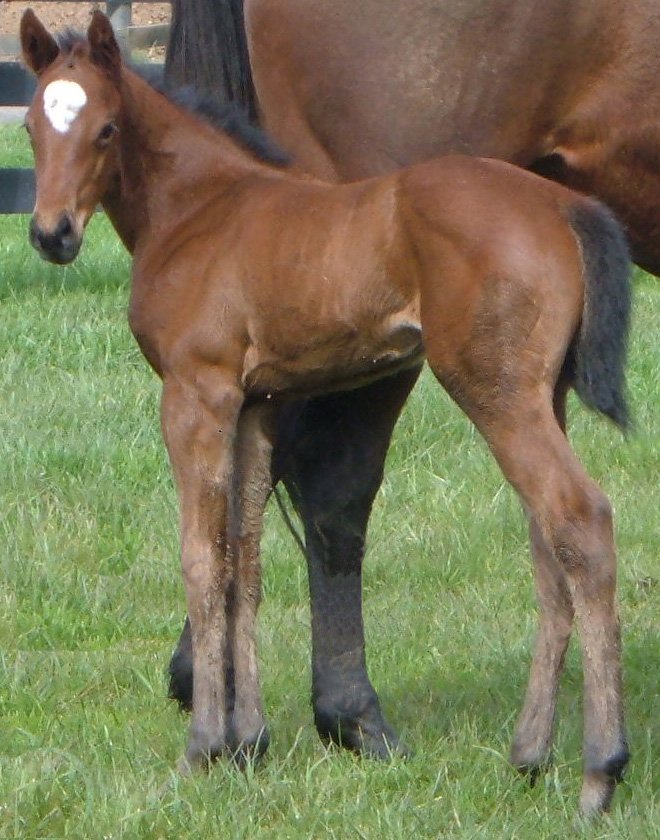
Preventative Health Care For Horses
Yearly Physical Exams
A yearly physical exam for a horse, also known as an annual or routine examination, is an important part of maintaining the health and well-being of the animal. The purpose of this veterinary examination is to assess the overall health status, identify any potential health issues, and provide preventive care. Here are some common components of a yearly physical exam for a horse:
Physical Evaluation: The veterinarian will start by performing a thorough physical evaluation of the horse. This includes observing the horse's behavior, demeanor, and overall body condition. They will check the horse's vital signs such as heart rate, respiratory rate, and temperature. They will also assess the horse's body weight, muscle tone, and general appearance.
Dental Examination: The veterinarian will examine the horse's mouth and teeth to check for any dental issues, such as sharp points, loose or missing teeth, or signs of dental disease. They may perform dental floatation, which involves filing down sharp points and correcting any dental abnormalities.
Hoof Examination: The veterinarian will inspect the horse's hooves for any signs of lameness, hoof imbalance, or hoof-related issues. They may clean the hooves and check for signs of infection, abscesses, or other abnormalities. Trimming or shoeing may be recommended if necessary.
Vaccinations: Based on the horse's age, location, and individual needs, the veterinarian may administer vaccinations to protect against common equine diseases such as tetanus, influenza, West Nile virus, and others.
Parasite Control: The veterinarian may recommend a fecal examination to assess the horse's parasite burden and prescribe deworming medication accordingly. They may also provide guidance on a strategic deworming program tailored to the horse's specific needs.
Blood Work: In some cases, the veterinarian may recommend blood tests to evaluate the horse's overall health, organ function, and check for any underlying conditions. Blood work can provide valuable information about the horse's blood cell counts, liver and kidney function, and metabolic profile.
Additional Tests: Depending on the horse's age, health history, or any specific concerns, additional tests may be conducted. These can include tests for infectious diseases, Coggins test for equine infectious anemia, joint or lameness evaluations, or reproductive examinations for breeding horses.
During the examination, it's also an opportunity for horse owners to discuss any concerns or ask questions about their horse's health, nutrition, or management. Regular yearly physical exams are vital for early detection of potential health issues and ensuring the well-being of the horse. It's always best to consult with a veterinarian for specific guidance on your horse's routine examination.
Equine Dentistry and Preventative Dental Care
Equine dentistry is a specialized field of veterinary medicine that focuses on the dental health and care of horses. It involves the diagnosis, treatment, and prevention of dental problems in horses. The primary goal of equine dentistry is to maintain the oral health and overall well-being of horses by ensuring proper dental function and preventing or addressing dental issues.
Horses have unique dental structures and oral needs that require regular attention. Their teeth continue to grow throughout their lives and are adapted for grazing and chewing fibrous vegetation. However, the modern domesticated horse's diet often includes processed feeds and grains, which can lead to dental problems if not properly managed.
Equine dentistry requires specialized training and in-depth knowledge of equine dental anatomy, physiology, and oral pathology. Equine Veterinarians will use specialized tools and techniques to examine, diagnose, and treat various dental conditions.
Some common dental issues in horses include:
Dental Malocclusions: Misalignments or abnormalities in the teeth or jaw, such as hooks, ramps, waves, or sharp enamel points. These can cause discomfort, pain, difficulty chewing, and poor performance.
Periodontal Disease: Inflammation or infection of the tissues surrounding the teeth, including the gums and tooth sockets. It can lead to tooth loss, abscesses, and systemic health problems if left untreated.
Dental Caries: Tooth decay or cavities that can occur due to improper dental hygiene or diet. Caries can cause pain, sensitivity, and difficulty eating.
Wolf Teeth: Small, vestigial teeth located in front of the premolars in some horses. They can interfere with the bit and cause discomfort, so they are often extracted.
Equine dentistry professionals perform a range of procedures to address these issues, including dental examinations, routine floating (smoothing) of sharp enamel points, tooth extractions, and treatments for periodontal disease. They may use hand tools or power tools, such as dental rasps and motorized floats, to shape and balance the teeth.
Regular dental check-ups and maintenance are essential for horses to maintain optimal dental health. Equine dentistry not only ensures the comfort and well-being of horses but also contributes to their overall performance, longevity, and ability to maintain a proper diet.
Vaccinations and Deworming Plans
When it comes to the vaccination and deworming plans for horses, it's a good idea to consult with a veterinarian that specializes in equine health. They will consider factors such as your horse's age, geographic location, general health, and specific risk factors to create a tailored plan. Some general guidelines as set forth by the AAEP (American Association of Equine Practioners) are as follows:
Vaccination Plan:
Core Vaccinations: Core vaccines are recommended for all horses regardless of their location or use. They protect against diseases that pose significant risks. The core vaccines for horses typically include:
Tetanus: Vaccination against tetanus is crucial, as the disease can be life-threatening.
Eastern and Western Equine Encephalomyelitis (EEE/WEE): These vaccines protect against mosquito-borne viral diseases.
West Nile Virus: This vaccine protects against the mosquito-transmitted West Nile virus.
Rabies: Horses should receive a rabies vaccine to prevent this deadly viral disease.
Risk-Based Vaccinations: These vaccines are given based on the individual horse's risk factors, such as geographic location, exposure, and lifestyle. They may include:
Equine Influenza: This vaccine is recommended for horses that frequently travel or are exposed to new horses.
Equine Herpesvirus (Rhino): Vaccination against equine herpesvirus is often recommended, especially for horses in high-traffic environments like shows or racetracks.
Strangles (Streptococcus equi): The strangles vaccine may be necessary for horses in environments where the disease is prevalent.
Botulism: Horses at risk of botulism, such as those on properties with significant rodent populations, may require vaccination.
Deworming Plan: Developing a deworming plan for your horse involves several factors, including age, management practices, geographic location, and fecal egg counts. The following are some general guidelines for deworming horses:
Fecal Egg Counts: Conduct regular fecal egg counts (FECs) to evaluate your horse's parasite burden. This helps determine if deworming is necessary and if the current deworming program is effective.
Strategic Deworming: Based on FEC results, your veterinarian will advise on the appropriate timing and choice of dewormers. They may recommend deworming at specific intervals or using targeted treatments against specific parasites.
Rotational Deworming: Traditional rotational deworming, where horses are dewormed on a fixed schedule, is no longer the preferred approach. It can contribute to parasite resistance. Instead, strategic deworming based on FEC results is now commonly recommended.
Pasture Management: Maintaining good pasture hygiene by regularly removing manure and practicing pasture rotation can help reduce parasite exposure.
Individualized Approach: Work closely with your veterinarian to create a deworming plan tailored to your horse's specific needs. They will consider factors such as age, travel history, exposure risks, and FEC results.
Remember, these guidelines are general, and it's important to consult with your veterinarian to develop a personalized vaccination and deworming plan for your horse.
Equine Nutrition Consultations
Ensuring that your horse receives a balanced and appropriate diet to support their overall health, performance, and well-being is our goal when it comes to guidance regarding their nutritional needs.
Important Factors:
Diet Analysis: Assessing the current diet and nutritional status of horses, including evaluating the quality and quantity of their feed and forage.
Nutritional Planning: Developing customized feeding programs and diet plans tailored to meet the specific requirements of individual horses. This includes considering factors such as age, breed, activity level, health conditions, and reproductive status.
Feed Selection: Recommending appropriate types of feeds and supplements based on the horse's nutritional needs, taking into account factors like energy requirements, protein content, vitamins, minerals, and specialized additives.
Balancing Nutrient Intake: Ensuring that the horse's diet provides the correct balance of carbohydrates, proteins, fats, vitamins, minerals, and other essential nutrients to maintain optimal health and performance.
Weight Management: Assisting in weight management programs for horses, whether it involves weight gain or weight loss, by adjusting their diet and monitoring their body condition.
Health and Digestive Issues: Advising on nutrition-related problems such as digestive disorders, metabolic conditions (e.g., insulin resistance), and food allergies. Formulating appropriate diets to manage and prevent these issues.
Performance Optimization: Collaborating with both owners and trainers to optimize the nutritional program to enhance athletic performance, endurance, and recovery.
Research and Education: Staying up to date with the latest scientific research, nutritional trends, and advancements in equine nutrition. Educating horse owners, trainers, and barn managers about proper feeding practices and nutrition-related topics.
Monitoring and Assessment: Regularly monitoring and assessing the horse's body condition, performance, and overall health to evaluate the effectiveness of the dietary program and make necessary adjustments.
Veterinarians can play a crucial role in promoting the health and well-being of horses through proper nutrition.
Coggins and Health Certificates
Equine Coggins and health exams are important components of horse healthcare and disease management.
Equine Coggins: Equine Infectious Anemia (EIA), also known as "Coggins disease," is a viral disease that affects horses, donkeys, and mules. The Coggins test is a blood test used to detect antibodies against the EIA virus. The test is named after Dr. Leroy Coggins, who developed it in the 1970s. The Coggins test is typically required for horses participating in shows, competitions, or crossing state lines, as it helps prevent the spread of EIA. A negative Coggins test indicates that the horse is free from EIA.
Health Exams: Health exams, also known as wellness exams or veterinary check-ups, involve a thorough examination of a horse's overall health. These exams are typically performed by a veterinarian and involve several components.
It's important to consult with a veterinarian for specific guidance on Coggins testing requirements and the frequency and scope of health exams, as these can vary based on factors such as regional regulations, horse age, and intended use.
Equine Insurance Exams
Insurance exams for horses typically involve a veterinarian conducting a thorough examination of the horse's health and physical condition. These exams are often required by insurance companies to assess the insurability and potential risks associated with insuring a horse.
During an insurance exam for a horse, the veterinarian will typically perform the following assessments:
Physical Examination: The vet will examine the horse's overall health, including body condition, heart and lung function, temperature, and general appearance.
Lameness Evaluation: The vet will assess the horse's gait and look for any signs of lameness or mobility issues. They may perform flexion tests and observe the horse's movement on different surfaces.
Musculoskeletal Evaluation: The veterinarian will palpate the horse's limbs, joints, and back to check for any abnormalities, such as swelling, pain, or limited range of motion.
Medical History Review: The vet will review the horse's medical records and inquire about any previous illnesses, injuries, surgeries, or ongoing medical treatments.
Diagnostic Tests: Depending on the insurer's requirements and the horse's individual circumstances, additional diagnostic tests may be conducted, such as bloodwork, X-rays, ultrasound scans, or endoscopy.
The purpose of these insurance exams is to evaluate the horse's health and identify any pre-existing conditions or potential risks. The results help insurance companies determine the premium cost, coverage limitations, and exclusions for insuring the horse. It's important to note that the specific requirements and procedures for insurance exams may vary between insurance companies and policies.
Microchipping
Permanent identification for horses has taken a huge step forward with development of a modern network for tracking and recovery of missing and stolen animals. Linked to the horse’s information microchips provide identification for ownership details.
Microchipping horses is a common practice that involves the implantation of a small electronic microchip beneath the skin of a horse. The microchip is about the size of a grain of rice and contains a unique identification number that can be read using a specialized scanner.
Placement: The microchip is typically implanted into the nuchal ligament, which is located on the left side of the horse's neck.
Scanning: Microchips are read using a handheld scanner that emits radio frequency signals. When the scanner is passed over the horse's neck, it detects the microchip's unique identification number. This number can then be used to retrieve the horse's information from a database.
Use in Identification Systems: Microchips are commonly used in horse identification systems, such as breed registries and horse passports. They are also helpful in cases of theft, loss, or disputed ownership, as they provide a reliable means of identifying a horse.
Competition Requirements: Many equestrian competitions and events require horses to be microchipped for identification purposes. Microchips help ensure that the correct horse is participating and can aid in anti-doping efforts.
It's important to note that microchipping horses should be performed by a qualified veterinarian following proper procedures and guidelines. The specific regulations and requirements regarding microchipping may vary by country or region, so it's advisable to consult local authorities or equestrian organizations for specific guidelines in your area.
Microchips have been recommended as one method of permanent ID by the Equine Species Working Group for the USDA’s National Equine ID Program.

